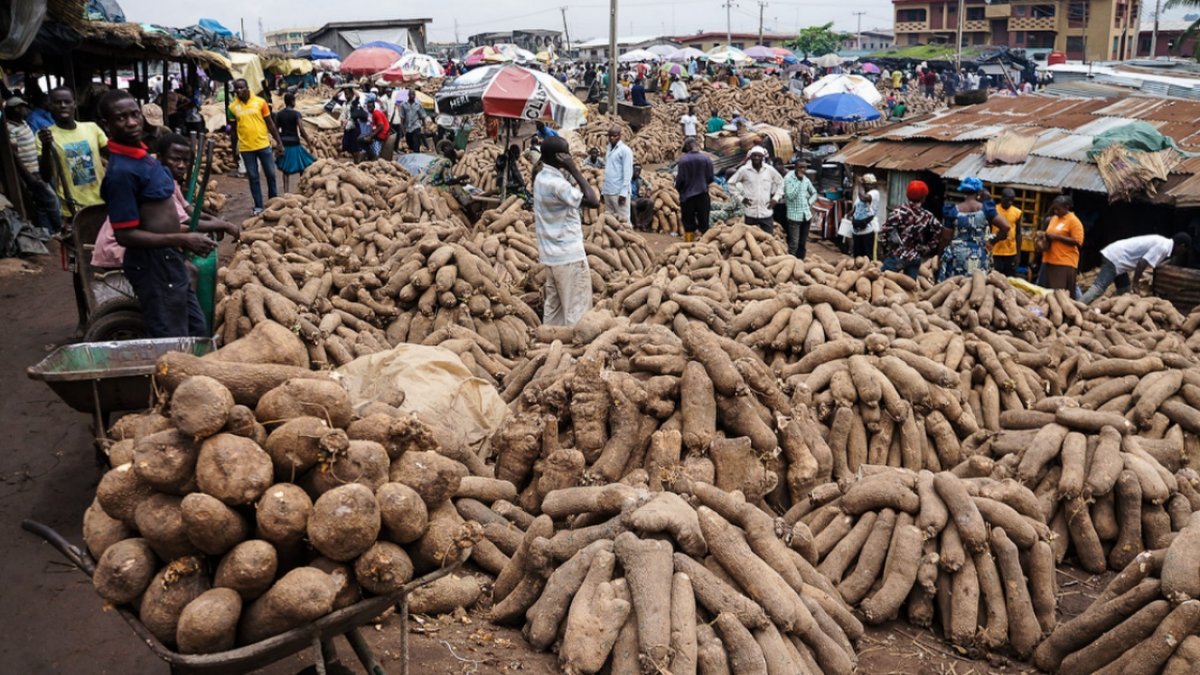Science or Sorcery? What GMOs Really Are
Globally, genetically modified organisms, or GMOs, have become a hot subject, and Nigeria is at the center of the controversy. Would they endanger our health and agricultural independence, or are they a modern answer to famine and poor farm yields?
The World Health Organization defines genetically modified organisms (GMOs) as species (plants, animals, or microbes) in which natural recombination and/or mating have changed the genetic material (DNA) in a way that does not occur naturally. The terms “modern biotechnology,” “gene technology,” “recombinant DNA technology,” and “genetic engineering” are frequently used to describe the technique.
Crops that have been genetically modified in a laboratory to possess unique qualities, such as pest resistance, increased nutritional value, or extended shelf life, are known as genetically modified foods or GM Foods. To achieve this, scientists alter the DNA of the plant.
Therefore, a genetically modified maize plant may create its own pest-fighting protein in place of using pesticides to combat insects. Theoretically, this lowers the need for pesticides, boosts yields, and saves money.
GMOs Invade Nigeria: Hope or Harm?
When the National Biosafety Management Agency (NBMA) authorized a genetically modified cowpea (beans) that is resistant to the fatal maruca pod-borer insect in 2019, Nigeria formally entered the GMO era
This was a significant development for Nigerian agriculture. The purpose of these permits was to assist farmers in addressing issues such as low yields, insect infestations, high pesticide expenditures, and crop failures caused by climate change.
These actions were taken in an attempt to lessen dependency on food imports and increase national food security.
The Pros of GMO Foods
Increased Food Production
The need for food is greater than ever due to Nigeria’s fast population growth. This need may be met in part by GMO crops, which are designed to thrive in harsh environments and yield more per hectare.
Pest and Disease Resistance
The use of dangerous pesticides by farmers is no longer necessary. For example, Bt cowpea and cotton are naturally pest-resistant, which lowers chemical pollution and saves money.
Improved Nutrition and Less Post-Harvest Loss
In order to combat hunger, which is still a major problem in many regions of Nigeria, future genetically modified crops may be enhanced with vitamins and minerals. Longer shelf life for crops also serve both farmers and consumers by reducing food waste and spoiling.
The Hidden Dangers of GMOs
Although GMOs provide answers, many Nigerian experts have legitimate reservations. Among them are:
Health Risks and Uncertainty
GMOs may cause allergies, chronic diseases, or other unanticipated consequences, according to some scientists and medical professionals. Because there aren’t enough long-term research, there is still doubt even if no clear damage has been demonstrated, yet.
Dependence on Foreign Corporations
Large international corporations have patented the majority of GMO seeds. Nigeria may become reliant on foreign biotech companies as a result of farmers having to purchase new ones each season and being unable to reuse them. This will be disastrous as majority of Nigerian farmers practice subsistence agriculture and this usually translates into them not having enough to pay for expensive seeds.
Loss of Traditional Seeds and Biodiversity and Environmental Concerns
Native crops, which are more adapted to regional soils and cultures, may become less common as a result of the introduction of GMOs. This puts Nigeria’s agricultural legacy at danger of deterioration. Unintentional genetic change may have an impact on nearby plants and species. Beneficial insects or soil organisms may be affected, and pests may develop resistance.
Public Reactions and Civil Society Pushback
The use of GMOs has been fiercely opposed by a number of Nigerian organizations, notably HOMEF (Health of Mother Earth Foundation) and other NGOs.
Among other problems, the government’s approval procedure was said to be opaque, farmers were not adequately consulted, and the public is not sufficiently informed about the dangers of genetically modified organisms.
Citing worries about human rights, the ecology, and health, several medical professionals even demanded in May 2025 that GMOs be banned immediately in Nigeria. As more GMO items hit the Nigerian market, these voices are becoming more and more loud.
What the Government and Scientists Say
Nigeria’s National Biosafety Management Agency (NBMA) maintains that GMOs are safe and have undergone extensive testing. It collaborates with global groups to evaluate hazards prior to authorizing any genetically modified crops.
As for Nigerian scientists working on crops like GM cowpea and TELA maize, they think these technologies have the potential to revolutionize agriculture, provided that the public has faith in them and the right rules are in place.
Conclusion: A Future Worth Deciding Together
GMO technology presents difficult social, health, and ethical issues, but it also has the ability to help feed Nigeria’s population. As a nation, we have to carefully balance the risks and rewards. Regardless of your stance on GMOs, you should participate in the national dialogue by calling for greater responsibility, transparency, and education from those in charge.
Additionally, think about lending a hand to small and local farmers that frequently cultivate non-GMO products in traditional ways, preserving Nigeria’s culinary culture and agricultural legacy.
Every Nigerian, from farmer to consumer, should have a voice in what we eat and how we cultivate it, rather than letting government representatives or foreign corporations handle the discussion. Because, in the end, food is a human concern, not merely a scientific one.







